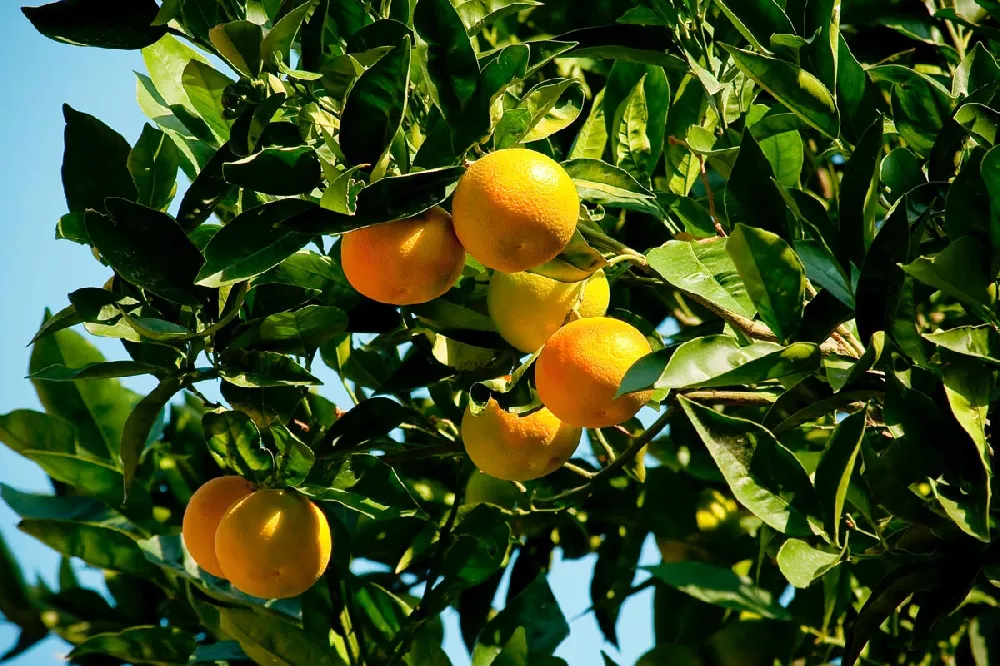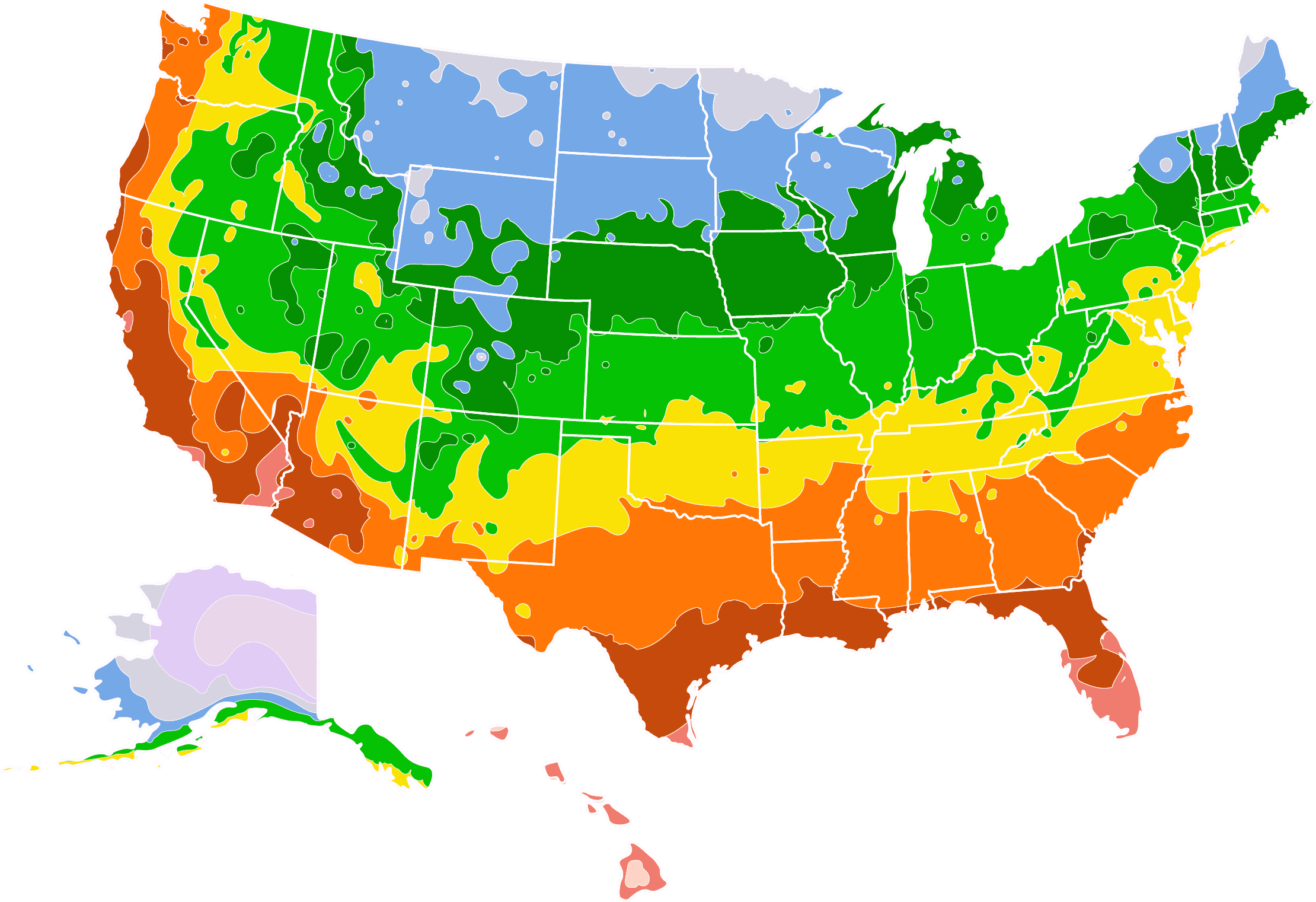- Home >
- Edible Plants >
- Ruby Red Grapefruit
Ruby Red Grapefruit for Sale - Buying & Growing Guide
- Ships in 1-2 days
- 1-Year Warranty Eligible
- Pots or accessories are not included unless specified in the product options.
Shipping Details:
Products shipped through FastGrowingTrees.com. Once your order is shipped, you’ll receive an email with a tracking number and estimated delivery date. Most orders will ship immediately.
If you've ever found your mouth watering at the thought of a juicy, fresh-off-the-tree ripe grapefruit, then Ruby Red grapefruit tree, Citrus x paradisi 'Ruby Red,' is for you. This tree's popular fruit is never better than when it's eaten just minutes after being harvested, and you'll love the succulent sweet-tart flavor that is generally missing in grapefruits bought at the grocery store. In addition, the Ruby Red grapefruit tree is a handsome tree, with glossy dark green leaves and a compact shape and size that tucks neatly into a corner of the garden. For those in the northern states, a Ruby Red grapefruit tree is the perfect choice for container growing and is an excellent addition to the patio garden. Here are a few other reasons to love Ruby Red grapefruit trees:
- Trees are self-fertile, so you can expect to harvest fruit even if you have just one tree.
- Trees should produce fruit within two years of planting.
- They are tolerant of drought, so they rarely need supplemental watering once established.
Plant Care
Sunlight

Ruby Red grapefruit trees grow best in full sun — six or more hours of direct light a day.
Watering
Water young trees every week until established; older trees need less supplemental watering.
Fertilizing

Fertilize your Ruby Red grapefruit tree throughout the growing season with a product that is designed for citrus trees.
Planting and Care
Planting instructions
Site your Ruby Red grapefruit sapling where it will get full sun, in well-drained soil. Unpot your tree, and tease out any encircling roots, which will girdle the tree and eventually kill it. Dig a hole that’s as deep as the root ball and twice as wide. Throw in a few handfuls of well-rotted manure or compost, and place the tree on top of it. Fill in around the tree with good-quality topsoil, tamping down as you go to eliminate air pockets. Water thoroughly. Apply a 2- to 3-inch layer of organic mulch, such as bark chips, around the root zone to conserve water, making sure it doesn’t touch the trunk.
Watering and nutrients
For the first year after planting, water your sapling every week, or more frequently if you’re experiencing very hot or dry weather. After the first year, you can taper back on watering. Give the tree a drink whenever the soil 2 inches below the surface is dry. Container-grown trees will need more frequent watering. Fertilize your Ruby Red grapefruit tree with a well-balanced, slow-release product intended for citrus trees. Feed throughout the growing season, as the package directions indicate.
Pollination
Grapefruit is monoecious, or self-pollinating; with a single tree you should still be able to harvest fruit. The trees have small creamy-white flowers that cluster at the end of branches. Bees and other insects visit the fragrant flowers and move pollen from the male to the female reproductive organs in the flowers. If your Ruby Red grapefruit tree lives indoors, you can help along the pollination process by swirling a small paintbrush in the flower to pick up pollen and placing it on another flower’s stigma.
Pruning
Prune your Ruby Red grapefruit tree after you harvest the fruit. Cut off any suckers that appear around the base of the trunk, as well as any dead, diseased, or damaged branches. Cut off branches that are rubbing against each other as well. If you are growing your grapefruit in a container, you can prune annually to control growth. When making a cut, terminate the branch where it meets with another branch, rather than at the tip.
Pests, diseases, and animals
Although a healthy Ruby Red grapefruit tree should be able to fend off most pest invasions or diseases, it doesn’t hurt to be on the lookout for insects such as spider mites, thrips, and scale insects. These can be handled with insecticidal soap or dormant oil spray. There are several diseases that are common with grapefruits, including anthracnose, which causes irregular spots on leaves and fruit and can be treated with a fungicide. Citrus black spot is another fungal disease that causes, not surprisingly, black spots on leaves. Apply fungicide and prune out all infected branches, destroying them to avoid spreading the disease.
Harvesting
Grapefruit is generally ready to harvest in the fall months. Harvest them by hand when at least half of the peel has turned to yellow and the fruit feels firm and heavy. Interestingly enough, you can leave the fruit on the tree through winter and it will only get sweeter. Leaving it, however, will mean that you have a smaller harvest the next year.
Achieving maximum results
It’s hard to believe that you could harvest grapefruits in, say, chilly New England, but by growing your Ruby Red grapefruit tree in a container, you can do just that. Choose a pot that is roughly twice the size of the tree’s root ball, with large drainage holes in the bottom. You will need to water your grapefruit more frequently than you would if it was in the ground and be sure to fertilize it regularly throughout the growing season. Bring your tree inside if the temperatures dip to around 20 degrees Fahrenheit, and place it in your sunniest window for the winter. Turn the tree regularly so all sides get some sun. Wipe down the leaves every month or so to keep them free from dust, and occasionally mist the leaves to increase humidity.
FAQs
Is a Ruby Red grapefruit like other grapefruits?
Grapefruit comes in three colors: white, pink, and ruby red. As you might guess, Ruby Red grapefruit has flesh that is a bright red, caused by high levels of lycopene and beta-carotene in the fruit. It is generally considered the sweetest of the three types, and it may be slightly smaller than them. All are part of the same family of fruits, however, and there are only minor differences between them.
Can Ruby Red grapefruits be used in cooking?
Yes. Although they are a sweet and refreshing treat right off the tree, you can use a Ruby Red grapefruit in any recipe calling for grapefruit or grapefruit juice. Ruby Reds can be juiced easily, used in salads, and made into jams and marmalades. They are often used in seafood recipes as well.
Are Ruby Red grapefruits seedless?
Yes! This amazing fruit comes without the tedious task of picking out seeds from your grapefruit half before eating it. They are also easier to peel than other grapefruit, making them an excellent choice for afternoon snacks or a quick morning breakfast.
Compare Similar Products
You can't add more Product Name - Product size to the cart.
OK









